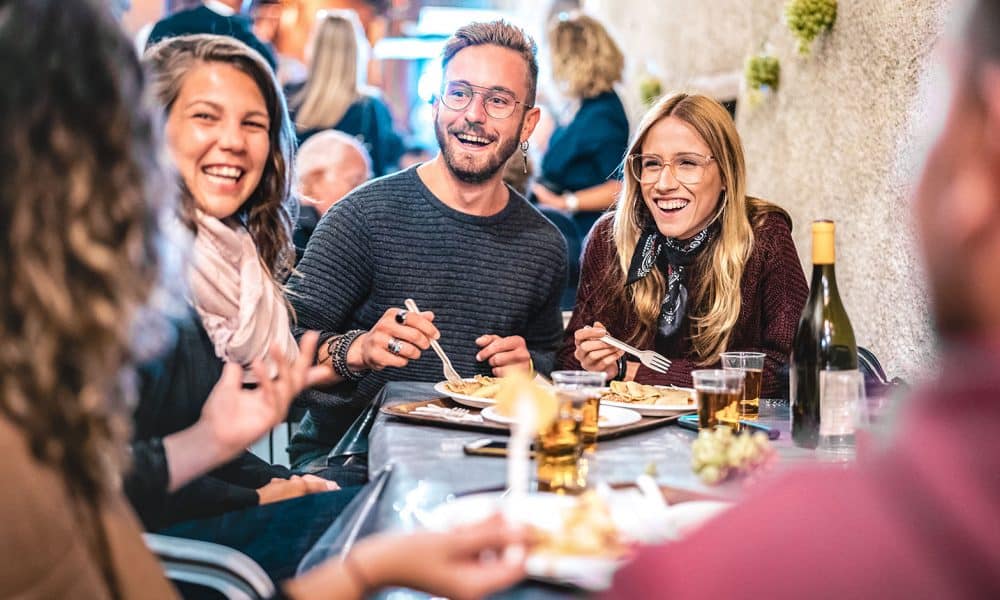

Countless people can relate to that terrible feeling of waking up after a night of heavy drinking. You might even have stated it would never happen again as you nursed a killer hangover, but some things are easier said than done. If you find it hard to stop drinking once you start, you are not alone.
But that doesn’t mean it can’t be done. We brought you some tips to make it much easier for you.
In this article, we’ll share with you four great tips to help you stop drinking once you start. And in case you aren’t sure why you need to stop in the first place, we included a few details on the effects of binge drinking.
4 Tips to Stop Drinking After You Had a Drink
Ready to put the glass down? Then follow these four tips to help you do so:
Know how much alcohol you are drinking and how much you should be drinking
If you educate yourself about the effects of alcohol on your body, drinking can be part of a healthy lifestyle. Health-conscious adults should limit their alcohol consumption to two drinks a day or ten a week. This recommendation reduces their lifetime risk of harm from alcohol-related diseases or injuries.
A typical drink contains roughly 10g of ethanol, which your body can digest in one hour. Your age, weight, gender, and state of mind determine how much alcohol you can consume.
When you drink more than your daily limit, you are more likely to have an accident, injury, or hangover. If you drink excessively regularly, you are more likely to develop long-term chronic conditions such as liver disease, mental illness, heart disease, brain damage, and cancer.
Drinking excessively is easy if you don’t realize how much alcohol you consume. Decide how much alcohol you want to drink and stick to it. If you’re drinking with friends who drink too much, do not drink in rounds. If you are having trouble keeping track of your drinking, try using a mindful drinking app like Sunnyside.
Drink less, or switch it up
Buying a lot of wine, beer, and liquor makes it harder to drink less. Try these tips for drinking at home or a bar:
- Don’t drink hard alcohol: One way to reduce alcohol consumption is to drink less concentrated drinks, like beer or wine, instead of vodka.
- Limit how much you buy: If you plan to drink alcohol on the day you buy it, make sure you buy a quantity that complies with your safe alcohol limit: You may need to buy single servings or half-size bottles of wine if necessary.
- Drink some water: Staying hydrated will help you avoid hangovers and make it easier to cut back on your drinking.
- Follow your schedule: Only drink as much as you wrote down and at your specified pace. You can use a binge drinking app for that.
- Choose low-alcohol or alcohol-free beverages: You can purchase the same amount of alcohol-free or low-alcohol wine or beer if you know you’ll want more drinks but not more alcohol.
Make sure to eat something
Since alcohol enters your system through your stomach and intestine, it will take longer to do so on a full stomach. On the other hand, drinking on an empty stomach is a fast ticket to getting drunk.
Make sure you eat something before you start drinking, but if you are already drinking, then pause to have something to eat. It’s a win-win situation. If you have a plate you can snack on while you drink, that helps you reduce the effects of alcohol while also distracting you.
Skip the drinking games and shots
People are more likely to be wounded, put themselves in danger, disgrace themselves, or even suffer from alcohol poisoning when they binge drink (drink more than four drinks in one sitting).
Avoid keeping up with your friends at all costs. Anything that will make you drunk quickly, such as drinking games, shots, and skolling races, should be avoided. Try playing pool, dancing, or discussing reality TV instead.
Also, alcohol mixed with energy drinks can cause you to drink more, so avoid that. And be cautious about how much you drink if you take other pills or medicines. There’s a reason why there are warning labels against drinking when taking pills.
The Problem with Binge Drinking
Drinking excessively can harm your physical and emotional health in the short and long run. Alcohol is rapidly absorbed into the blood, so some of the consequences of binge drinking are felt within the first ten minutes.
A single night of binge drinking, especially in large amounts, can affect various physiological systems in the short term. If you consume more alcohol than your liver can handle, you might experience inflammation and organ discomfort. Binge drinking, however, can have far-reaching consequences.
Over time, binge drinking may hurt your emotional health in addition to physical issues. It affects how your brain functions when you drink excessively regularly.
Drinking too much can also affect your relationships with others. Since alcohol lowers inhibitions, binge drinking may make you more “open” to doing things you normally wouldn’t do.
Final Thoughts
Knowing something is bad for you doesn’t mean stopping will be easy. We get that. However, it doesn’t mean you should stop trying either. The best thing you can do is find support through family and friends. They can be a great ally in your quest to reduce your drinking.
If you follow the tips above, you can get started without making it too difficult for yourself. What they can’t do, however, is stop for you. So, it’s important that you are consistent and don’t give up.
























